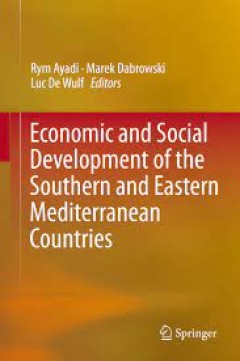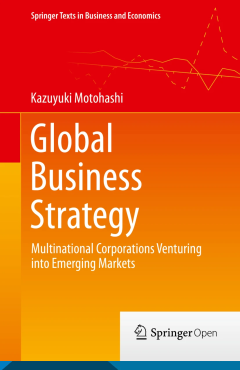Filter by

The Replication of Retail Fashion Formats into Foreign Countries A Qualitati…
Christoph Schröder does one of the first attempts to analyze format transfers within the scope of different strategies, format elements, countries and success with focus on the fashion industry. Three distinct format transfer strategies are identified. The empirically observed design of format elements supports and extends the existing research. Fashion firms standardize their “Retail cultur…
- Edition
- -
- ISBN/ISSN
- 978-3-658-07541-5
- Collation
- -
- Series Title
- -
- Call Number
- -

The Replication of Retail Fashion Formats into Foreign Countries A Qualitati…
Christoph Schröder does one of the first attempts to analyze format transfers within the scope of different strategies, format elements, countries and success with focus on the fashion industry. Three distinct format transfer strategies are identified. The empirically observed design of format elements supports and extends the existing research. Fashion firms standardize their “Retail cultur…
- Edition
- -
- ISBN/ISSN
- 978-3-658-07541-5
- Collation
- -
- Series Title
- -
- Call Number
- -

Family Businesses in Transition Economies Management, Succession and Interna…
This book presents the reader a comprehensive understanding of the development of family business in transitional economies. Throughout eastern Europe, post-Communist countries transitioning to market-based economies are obtaining a variety of results due to diverse policy approaches. Expert contributions in this book draw from a wealth of information in this context and include thought-prov…
- Edition
- -
- ISBN/ISSN
- 978-3-319-14209-8
- Collation
- XXIV, 349
- Series Title
- -
- Call Number
- -

Valuing Banks A New Corporate Finance Approach
This book aims to overcome the limitations the variations in bank-specifics impose by providing a bank-specific valuation theoretical framework and a new asset-side model. The book includes also a constructive comparison of equity and asset side methods. The authors present a novel framework entitled, the “Asset Mark-down Model”. This method incorporates an Adjusted Present Value model, whi…
- Edition
- -
- ISBN/ISSN
- 978-1-137-56142-8
- Collation
- 19 b/w illustrations
- Series Title
- -
- Call Number
- -

Understanding the Dynamics of Global Inequality Social Exclusion, Power Shif…
Despite the fact that the globalization process tends to reinforce existing inequality structures and generate new areas of inequality on multiple levels, systematic analyses on this very important field remain scarce. Hence, this book approaches the complex question of inequality not only from different regional perspectives, covering Africa, Asia, Europe, Latin and Northern America, but also …
- Edition
- -
- ISBN/ISSN
- 978-3-662-44766-6
- Collation
- 8 b/w illustrations
- Series Title
- -
- Call Number
- -

The European Banking Union
Why did European policy-makers introduce the Banking Union? Which are its main features? How does it affect banks and their customers? This book tries to answer these questions, by providing a clear description of the building blocks of the banking union, and by discussing the issues that still remain unanswered.
- Edition
- -
- ISBN/ISSN
- 978-1-137-56314-9
- Collation
- XIII, 136
- Series Title
- Palgrave Macmillan Studies in Banking and Financial Institutions
- Call Number
- -

Economic and Social Development of the Southern and Eastern Mediterranean Cou…
This book contains a unique collection of studies on key economic and social policy challenges faced by countries of the Southern and Eastern Mediterranean region in a short- and long-term perspective. Prepared within the EU funded FP7 project on „Prospective Analysis for the Mediterranean Region (MEDPRO)” conducted in 2010-2013 it takes account on recent political developments in the regio…
- Edition
- 1
- ISBN/ISSN
- 978-3-319-11121-6
- Collation
- -
- Series Title
- 2 b/w illustrations, 28 illustrations in colour
- Call Number
- XXVII, 339

Global Business Strategy Global Business Strategy
This book presents theories and case studies for corporations in developed nations, including Japan, for designing strategies to maximize opportunities and minimize threats in business expansion into developing nations. The case studies featured here focus on Asia, including China and India, and use examples of Japanese manufacturers. Five case studies are provided, including Hitachi Construct…
- Edition
- -
- ISBN/ISSN
- 978-4-431-55467-7
- Collation
- XVII, 259
- Series Title
- -
- Call Number
- 650 MUT g

German-Sino Business Networks
In this book, Alexander Häntzschel presents the benefits of organized networks and provides a first-ever overview of German-Sino business networks. Based on more than 20 expert interviews and research of 30 different cases, the analysis covers the different forms of organization, their target groups and members, services and activities, and accessibility and membership fees. Complementary to t…
- Edition
- -
- ISBN/ISSN
- 978-3-319-17857-8
- Collation
- XIX, 105
- Series Title
- -
- Call Number
- 330 HAN g

Geopolitics, Development, and National Security
This volume focuses on the spotlight on Romania and Moldova, two distinct nations that share a common language, history and culture. Romania is a NATO member since 2004 and a fully integrated nation into the European Union since 2007, while The Republic of Moldova (a former Soviet republic) is attempting to join both international organizations for security and development reasons. Ever sinc…
- Edition
- -
- ISBN/ISSN
- 978-3-319-12684-5
- Collation
- XI, 118
- Series Title
- -
- Call Number
- 320.12 GEO
 Computer Science, Information & General Works
Computer Science, Information & General Works  Philosophy & Psychology
Philosophy & Psychology  Religion
Religion  Social Sciences
Social Sciences  Language
Language  Pure Science
Pure Science  Applied Sciences
Applied Sciences  Art & Recreation
Art & Recreation  Literature
Literature  History & Geography
History & Geography